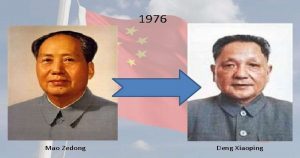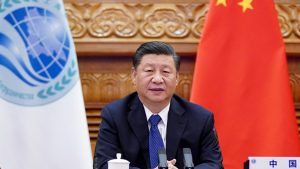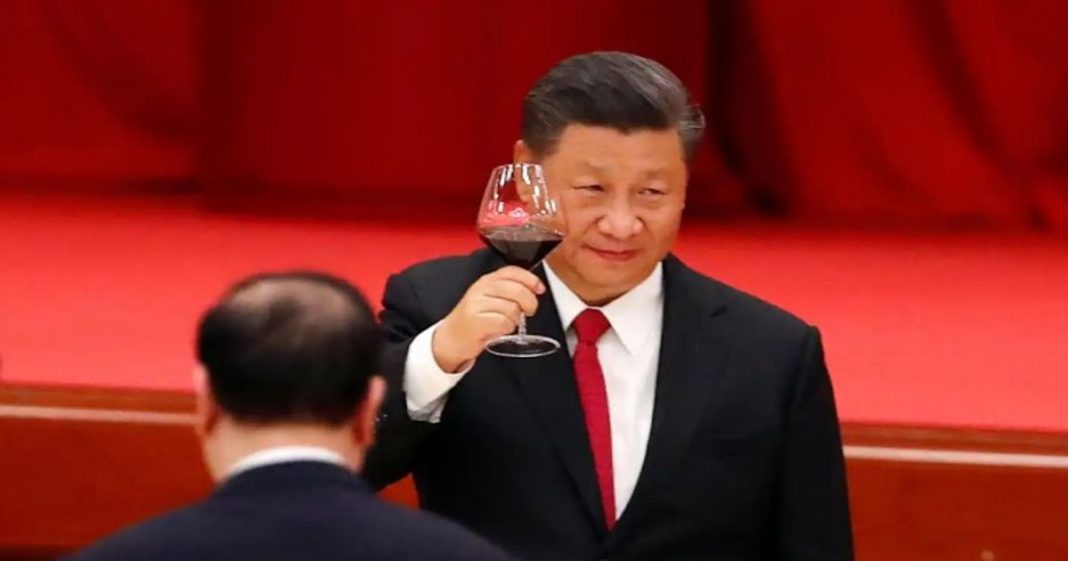Flexibility and adaptability are the unique characteristics of CPC. CPC kept on transforming according to the ground realities from time to time. CPC is open-minded and willing to learn anything which benefits them and leads them toward achieving their goals and targets. The credit goes to visionary leadership, which has been enlightening CPC members with the emerging situations and guiding them on how to transform.
It was the post-Russian revolution era, where Marxism was appearing as an alternate political system to existing imperialism, capitalism, feudalism, colonialism, and modern western-style democracy, as all of the previous political systems were eroded and proven problematic. Theoretically, Marxism was ideal and faultless.
Hence there was a growing movement around the globe, where the youth were convinced for Marxism and all the anti-marxism forces were jointly opposing it. The establishment of CPC on 01 July 1921 in Shanghai was also facing huge resistance.
Read more: The Communist Party of China: A look into its successful 100 years
The ruling political party of that time “Guo Min Dang” or Nationalist party was opposing it along with all anti-marxism forces. So CPC had to work underground and keep safe and secure communication by keeping the ruling party unaware.
1921-1949 era: Struggle against the Japanese
Initially, CPC was willing to work for the ruling party, but soon after, noticed that both are based on diverse ideologies and have opposite goals, so CPC had to go underground and struggle silently.
The major task was to struggle against the Japanese occupation. It was a time of guerrilla war and the CPC had to learn the guerilla war tactics and remain underground. The enemy was a military might “Japan” who had a huge well trained regular army and enormous resources and modern weapons. The CPC had to attain skills to defeat them.
Read more: Japanese PM Abe resigns in bombshell development, race for succession on
Later on, after the Japanese defeat, CPC focused on countering the ruling party, which required a different set of skills. Once again, CPC was transformed to win against the ruling party.
Over 28 years of painful fight, the CPC united the Chinese people under one umbrella, one ideology, & one nation and led them to defeat Japanese imperialism, defeated the reactionary Kuomintang regime, completed the new democratic revolution, and established the People’s Republic of China. The Chinese people have since risen.
Read more: China’s Xi seeks to enforce Strong will against corruption at Communist Party meeting
1949-1978 era: CPC making waves despite challenges
After liberation, CPC had to acquire many different skills, from guerilla war to managing a country, and governance skills. CPC which was trained for attacking government buildings and installations had to learn to safeguard government buildings, installations, and public safety.
The CPC had to learn how to promote agriculture, industrialization, economy, science and technology, health, education, and maintaining law and order. The CPC once again transformed to fit for governance. It was a big change and a completely different mindset. But the great and wise leadership played an important role and successfully transformed CPC into a suitable body for running a country.
China was a huge country, highly populated, diverse in ideology, with a big gap between rich and poor, rich in minorities and ethnic groups, etc. – challenges were severe. But CPC in line with its tradition of transformation very quickly learned the qualities of governance and united the whole nation under one umbrella, and on one ideology.
Read more: Uprooting Corruption: Lessons from China
Keeping in mind, the Chinese society, which was mostly agriculture-based, Chairman Mao has added his thought, and CPC has to learn the maxims with Chairman Mao’s thoughts, which was more suitable for China. As compared to Russia, which was an industrial country, Lenin added his thoughts to suit Russia. Which was quite different from China.
During this era, China passed many huge challenges and overcame many hurdles like the Western sanctions, Korean war, fight against drought and famine. China introduced commune systems in agriculture and set up basic and heavy industries. The cultural revolution was also during this era, which was again, a unique experience for CPC.
From 1949 to 1978, the CPC united the Chinese people to complete the socialist revolution and transformation. They established an independent and relatively comprehensive industrial system as well as a national economic system. These achievements established socialism as China’s basic system and put together a concrete foundation for China’s development and progress on all fronts.
Read more: China on path to become largest economy despite the pandemic
Political reforms resulted in uniting the whole nation under one ideology. The class system was transformed into a classless society, where everyone was equal with no exception or privilege to any individuals.
The first couple of decades were a tough time for CPC, as the internal challenges were huge well as external pressure from the imperialists, colonialists, feudalists, capitalists, and western-democracy was enormous.
Significantly, the Western world under the American leadership launched a cold war against Communism and tried to suppress the spread of Communism globally. But, CPC, with its collective wisdom, under the outstanding leadership of Chairman Mao, not only resisted internal and external challenges but built its own unique political and governance system.
Read more: US-China ‘Cold War’: how bad can it get?
1978-2013: Focusing on the economy
Great leader Deng Xiao Ping, introduced reforms, and opening up China to the rest of the world was an entirely different chapter. Under Chairman Mao, money was considered “dirty” and ” to be wealthy is a curse”, and he emphasized working for “people’s Welfare”. However, Deng Xiao Ping had a completely different approach as “To be a communist, need not be poor.”
Deng’s philosophy was the creation of wealth, and become rich. He believed that first, a small group of people become rich, and then, they will perpetually bring others to become rich. This process may carry on for some time, till every Chinese becomes wealthy.

Initially, agriculture reforms were introduced, from the commune system, and the household system was introduced. The CPC had to transform completely and understand the new system and then implement it gradually. CPC being adaptive and flexible, did the transformation very quickly and produced marvelous results.
In a span of only six years, from 1978-1984, the reforms in the agriculture sector have up-lifted around 500 million people from poverty. A country hard hit with food shortages, became almost self-sufficient and even, started to export some of its agriculture produce. It was a mega achievement of CPC.
Read more: Chili farming under CPEC set to boost agriculture sector
With the success of agricultural reforms, the Chinese leadership was more confident and introduced reforms in other sectors gradually like Industry, Trade, Business, Education, Social sector, etc. CPC kept on learning new skills and ideologies to suit the emerging trends throughout this journey. Whenever the nation faced any big problem, the leadership sat together and based on collective wisdom, always found a solution. The CPC was always guided and reformed to solve all problems.
During this era, the focus was economy. The reforms were facing resistance initially, but gradually got acceptance and especially in the 1990s, after Deng Xiao Ping’s trip to the South of China, the reforms were launched in full swing. Even after the death of Mr. Deng Xiao Ping, his followers like Zhu Riong Ji the Priemer have kept the same path.
Till 2001, China joined WTO and tasted the benefits of globalization, China really became the beneficiary of opening-up policies. Previously during 1949 -1978, China was a very conservative and close society and was struggling in complete isolation, with having almost no contact with the rest of the world. Since the launch of reforms in 1978, the opening-up policy was also introduced but on a very limited scale. After joining WTO, China became a member of the elites of the international community.
Read more: Historic moment as China’s new space station receives its first astronauts
Chinese economy surpassed the German economy in 2005 and then surpassed the Japanese economy in 2010. Based on projections, the Chinese economy is set to surpass the American economy in 2025. China has emerged as the second-largest economy in the world.
The CPC has to catch up and learn new skills to suit modern China. During this era, China was practicing Marxism with Chairman Mao’s thought and Deng Xiao Pings reforms and opening-up policies which were termed as Chinese Characteristic Socialism.
2013 and onward
This is the era when President Xi became the Secretary-General of CPC and Chairman of the Military Commission. During this era, China gained global recognition and became deeply involved in geopolitics and international affairs.

China became a balancing factor in the previously unipolar world, where the US was exercising its hegemony. The US invaded Iraq, Libya, Afghanistan, but no other country raised its voice but accepted American hegemony.
However, with the rise of China, the US could not attack North Korea and Iran, and many other international conflicts were averted because of China. Although the Revival of Russia is an important factor too, China and Russia are on one page and confronting the Western world jointly.
Read more: Russia & China: Closer than ever before
CPC and poverty eradication
China was among the very few countries hard-hit by poverty and was counted as the second poorest country in the Asian region. Its poverty index almost touched 88 percent. However, CPC led a drive to eliminate absolute poverty. Poverty eradication is the most glowing demonstration of the philosophy of putting people front and center.
Since the reforms and opening up, China has lifted 850 million out of poverty, which accounts for more than 70% of the global total over the same period. It means China has achieved the poverty reduction targets set out in the UN 2030 Agenda a decade ahead of schedule.
Read more: China’s Poverty Alleviation Model: A Miracle to Explore
Since the 18th CPC National Congress, General Secretary Xi Jinping himself has been working to command, strategize and oversee efforts to reduce poverty. He has presided over seven central conferences on poverty alleviation, conducted more than 50 on-site investigations on poverty reduction efforts, and visited 14 contiguous poverty-stricken areas.
He led the party and people to win the great battle against poverty eventually. In this process, millions of party officials have worked hard with concrete measures, and more than 1,800 party members and officials have sacrificed their lives for the cause. Their ultimate sacrifice speaks volumes to the original aspiration and mission of Chinese Communists. Now China has become a moderately prosperous society already.
Read more: China and the history of its Special Economic Zones
Victory against COVID-19
As a matter of fact, it is the performance and dedication of CPC with which it serves the nation. Above personal interests, the CPC is working hard for the total welfare of people. It was demonstrated during the outbreak of COVID-19.
China was the first country to become a victim of COVID-19. At that time, no one knew much about COVID-19 in any part of the world and was unaware of what to do and how to overcome it. CPC took this challenge, and scientists of CPC worked hard to understand the virus’s genomics and concluded that it is highly contagious.
So CPC formulated a policy to contain it, intending to save human lives first. Under the direct directives of the Secretary-General of CPC, President Xi Jin Ping implemented a comprehensive approach to a total lockdown.
Read more: China suspends international flights from PIA amid Covid-19 spread
The hard work and collective wisdom of CPC resulted in victory against COVID-19. China was the first country to fall prey to the virus and the first country to win against the virus. China is the country with minimum loss of lives and the lowest fatality rate in the world.
The credit must go to CPC. CPC with its team of scientists and health experts, not only learned the nature of the virus genomics but also adopted measures to overcome it. And further new skills are being learned to overcome this challenge.
Read more: China holds triumphant ceremony to celebrate beating the coronavirus
Celebrations for the 100th anniversary of CPC
The 100th anniversary of the Communist Party of China (CPC) will be celebrated with full excitement and overwhelming joy. The activities include a grand gathering during which President Xi Jinping, along with the general secretary of the CPC Central Committee and chairman of the Central Military Commission, will deliver an important speech.
President Xi will also present the July 1 Medal and certificate to party members who have made remarkable contributions. The CPC Central Committee will honor outstanding party members, exemplary party workers, and advanced community-level party organizations. A commemorative medal will be awarded to those who have been party members for 50 years or more and have consistently performed well in their roles.
Visits will be paid to the homes of party members who received various forms of honor and commendation, and to those who live in difficulties, the veterans, as well as the families of the revolutionary martyrs and party members who died on duty.
Read more: As China celebrates Shenzhen, Pakistan’s Gwadar aims to follow suit
Major theme exhibitions will be held to showcase the CPC’s journey in the past century, as well as its achievements and experience. A major theatrical performance will be hosted. Seminars and symposiums on the theoretical study will also be organized. Documentaries, special programs, TV dramas, music, dances, and films will be created and promoted. Major publications, including a book on the CPC’s 100-year history, will be compiled and released.
Party-themed publicity and education activities will be carried out for the public nationwide. Various celebrations have been scheduled across China, especially at places of great significance in the history of the CPC. Many foreign leaders and dignitaries will attend the event in Beijing or online virtually.
Jamiat Ulema-i-Islam (Fazl) chief Maulana Fazlur Rehman will virtually address the Communist Party of China’s state ceremony.
Read more: Is Pakistan China’s darling?
The Maulana will make an online speech to the Communist Party’s state function on July 5th. Chinese President Xi Jinping has invited 500 like-minded leaders from across the world. The preparations for the function are in full swing in Beijing. The state ceremony will be held at the Great Hall of People in Beijing. According to details, the ceremony organizers have already recorded the Maulana’s address which will be 8 minutes long.
CPC is in close liaison with almost all political parties in Pakistan and supporting the ruling party like always. CPC is also in touch with almost all foreign governments, ruling parties, and major opposition parties around the globe. The CPC is working internationally above the ideology and serving the greater role of serving humanity and global peace and developments.
CPC is capable to transform to suit any situation any environment, any demand which might emerge in the future too. The capacity of learning and transformation is the major distinction for CPC, which is rarely found in other political parties. CPC has a good nature of learning and adaptation, whenever and wherever is needed.
Read more: Celebrating 70 Years of Pakistan-China Friendship
Availing this opportunity, I invite the Pakistani nation to join the marvelous celebrations of the founding of CPC and wish our Chinese brothers and sisters, all the best and good luck in their future endeavors.
China-Pakistan Traditional Friendship Long Lives!
Author: Prof. Engr. Zamir Ahmed Awan, Sinologist (ex-Diplomat), Editor, Analyst, Non-Resident Fellow of CCG (Center for China and Globalization), National University of Sciences and Technology (NUST), Islamabad, Pakistan. (E-mail: awanzamir@yahoo.com).The views expressed in the article are the author’s own and do not necessarily reflect the editorial policy of Global Village Space.


